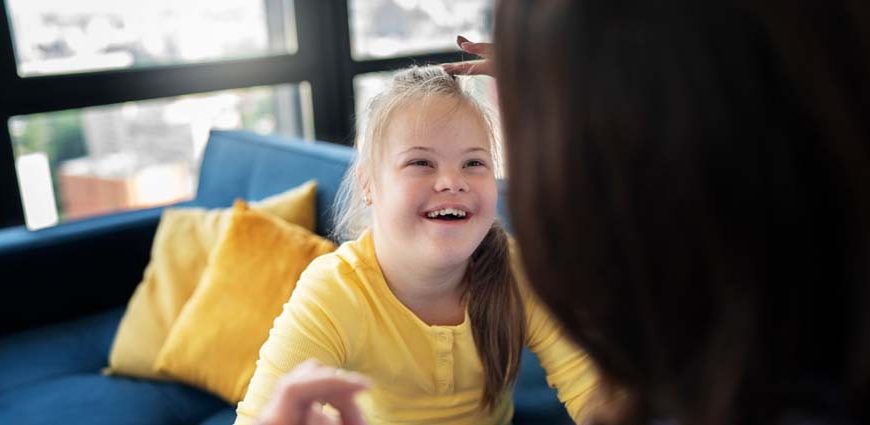Parenting is a journey filled with joy, challenges, and profound responsibilities. As parents, we play a pivotal role in shaping the future of our children. There’s a plethora of scientific research that shows parents have a big impact on their child’s development, even beyond pampering and bedtime stories. We’ll look at the intriguing science underlying how parents affect their children’s development and well-being in this blog article.
Understanding the Parental Impact
- Genetic Contributions:
- Environmental Influence:
- Early Learning Experiences:
- Emotional Support:
- Active Participation in Education:
- Setting Behavioral Examples:
The journey begins with genetics. Parents pass on a combination of genes that shape a child’s physical and cognitive attributes. From eye colour to preconceptions of certain conditions, the genetic blueprint laid out by parents provides the foundation for a child’s unique developmental path.
Beyond genetics, the environment created by parents is also a powerful force. The home environment, parenting style, and family dynamics are the important factors that affect child development. A supportive and nurturing environment fosters positive outcomes, while a stressful or neglectful one can hinder growth.
Parents are a child’s first teachers. Engaging in activities that stimulate cognitive development during the early years is crucial. Activities such as reading together, playing educational games, and exploring the world around them lay the foundation for future academic success.
Emotional support is not just comforting; it has a profound impact on overall development. A secure connection formed through responsive caregiving and spending quality time together helps in developing a child’s emotional regulation and social skills.
No doubt, parents play a vital role in a child’s education. Involvement in school activities, helping them in completing their homework, and promoting a positive attitude towards learning can significantly influence academic achievement.
Children learn by observing. Modelling positive behaviours, effective communication, and problem-solving skills are essential aspects of parental influence on a child’s behavioural development.
How Parenting Styles Affect Child Development?
Parenting styles, characterized by the combination of responsiveness and demandingness, significantly influence a child’s overall development. Psychologist Diana Baumrind identified four main parenting styles: authoritative, authoritarian, permissive, and neglectful. Each style has distinct effects on a child’s emotional, cognitive, and social development.
- Authoritative Parenting:
- Authoritarian Parenting:
- Permissive Parenting:
- Neglectful Parenting:
Authoritative parents drive a balance between warmth and structure. They provide clear expectations and rules while being responsive to their child’s needs. Research consistently shows that children raised by authoritative parents tend to have better emotional regulation, and higher self-esteem, and perform well academically.
Authoritarian parents are likely to be high on demandingness but low on responsiveness. They enforce strict rules and expectations without much room for flexibility. While these children may excel academically, they often struggle with social skills and may experience higher levels of anxiety due to the rigid structure imposed by their parents.
Permissive parents are characterized by high responsiveness and low demandingness. They are lenient and indulgent, often avoiding the establishment of clear rules. While these children may feel a sense of freedom, they may lack self-discipline and struggle with boundaries, impacting their academic and social development.
Neglectful parents are comparatively low on both responsiveness and demandingness. Children raised in neglectful environments may face challenges in forming secure attachments, resulting in issues with trust and emotional well-being.
Parental Challenges in Modern Times
- Balancing Work and Family Life:
Modern parenting often involves juggling career and family responsibilities. Striking a balance is crucial, as excessive work-related stress or not being able to spend quality time with family can impact a child’s emotional well-being.
Dealing with Information Overload:
The digital age brings a constant influx of information. Parents grapple with sorting through parenting advice, conflicting studies, and societal expectations, creating a sense of overwhelm. Navigating this information overload is essential for informed decision-making.
Navigating Technology and Parenting:
While technology offers numerous benefits, it also presents challenges. Screen time, cyberbullying, and the impact of social media on children are significant concerns. Parents must find ways to embrace technology mindfully, ensuring it enhances rather than hinders child development.
Effective Coping Strategies for Parents
Proper Time Management
Time is a precious commodity for parents. Effective time management is crucial to ensure that both work and family receive the attention they deserve. Prioritising tasks and setting boundaries can help alleviate the stress associated with time constraints.
Open Communication within the Family
Communication is extremely important in a healthy family dynamic. Creating an open and supportive environment where family members feel comfortable expressing their thoughts and feelings encourages understanding and unity.
Adopting Technology Mindfully
Rather than resisting technology, parents can embrace it mindfully. Setting limits on screen time, engaging in educational activities, and monitoring online interactions are essential steps to navigate the digital landscape responsibly.
Recognising and Addressing Parental Stress
Parental stress is inevitable, but recognising and addressing it is crucial. Finding healthy outlets for stress, such as exercise or mindfulness practices, contributes to emotional well-being and a more positive parenting experience.
Building a Support System
No parent should navigate challenges alone. Building a support system, whether through friends, family, or support groups, provides a valuable network to share experiences and gain insights into effective coping strategies.
Creating Meaningful Traditions
Establishing meaningful family traditions contributes to a sense of stability and belonging. Whether it’s a weekly game night or a special holiday tradition, these activities create lasting memories and strengthen family associations.
In conclusion, the science behind how parents affect child development is vast and multifaceted. From the earliest moments of genetic inheritance to the ongoing influence of parenting styles, the impact is lifelong. Understanding the importance of what we do as parents enables us to establish conditions that support our kids’ potential.
We must continue to learn, modify our strategies, and cherish the moments that contribute to our dear child’s growth and well-being as we navigate the complex terrain of parenting. In partnership with EuroKids, you can ensure the best development of your child. Here, we recognize the importance of addressing parental challenges for the holistic development of children. As a leading early childhood education provider, EuroKids is committed to supporting parents in navigating these challenges.
By acknowledging the science behind how parents affect child development and offering resources, EuroKids aims to create an environment where children can thrive. Remember, understanding and overcoming challenges is a shared journey, and EuroKids is here to support you every step of the way. Experience the Eurokids difference – where education is a journey of exploration, curiosity, and growth.
Frequently Asked Questions
- How can parents foster positive social development?
- Can permissive parenting have positive effects on children?
- Do parenting styles affect a child’s social skills?
- What are the main parenting styles, and how do they differ?
- Can permissive parenting have positive effects on children?
Answer: Creating a secure emotional environment, teaching empathy, and modelling positive behaviours are key to fostering positive social development.
Answer: Permissive parenting can lead to warm relationships between parents and children. However, the lack of clear expectations and boundaries may result in challenges related to self-control, responsibility, and academic motivation.
Answer: Yes, parenting styles influence a child’s social skills. Authoritative parenting tends to promote strong social skills, while authoritarian parenting may hinder positive social development. Permissive parenting, while fostering warm relationships, may lead to challenges in areas like sharing and collaboration.
Answer: The main parenting styles are authoritative, authoritarian, permissive, and neglectful. They differ in the balance between responsiveness (warmth and support) and demandingness (rules and discipline). Authoritative is balanced, authoritarian is demanding but less responsive, permissive is responsive but less demanding, and neglectful is neither demanding nor responsive.
Answer: Permissive parenting can lead to warm relationships between parents and children. However, the lack of clear expectations and boundaries may result in challenges related to self-control, responsibility, and academic motivation.











